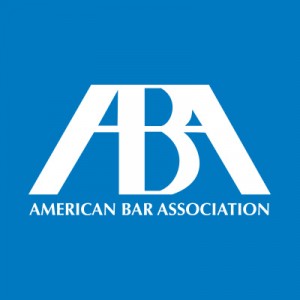ABA releases new ethics guidance on dealing with disasters

Recent large-scale disasters like Hurricane Florence and wildfires on the West Coast have reinforced the need for the ABA to address the myriad rules that lawyers must consider under these challenging circumstances. ABA Formal Ethics Opinion 482, released on Wednesday by the Standing Committee on Ethics and Professional Responsibility, clarifies the variety of ethical obligations attorneys face when disaster strikes.
Perhaps most fundamentally, lawyers must follow the duty of communication required by Rule 1.4 of the ABA Model Rules of Professional Conduct, which requires lawyers to communicate regularly with clients and keep clients reasonably apprised of their cases. Following a disaster, a lawyer must evaluate available methods to maintain communication with clients. The opinion instructs that lawyers should keep electronic lists of current clients in a manner that is “easily accessible.”
Lawyers should also remember that the duty of competency, Rule 1.1 includes a technology clause that requires lawyers to consider the benefits and risks of relevant technology. Because a disaster can destroy lawyers’ paper files, lawyers “must evaluate in advance storing files electronically” so that they can access those files after a disaster. Storing client files through cloud technology requires lawyers to consider confidentially obligations.
If a disaster causes the loss of client files, lawyers must also consider their ethical obligations under Rule 1.15, which requires lawyers to safeguard client property. For current clients, lawyers can attempt first to reconstruct files by obtaining documents from other sources. If they cannot, lawyers must notify the clients of the loss of files or property. To prevent such losses, “lawyers should maintain an electronic copy of important documents in an off-site location that is updated regularly.”
A disaster could impact financial institutions and, therefore, client funds. Thus, lawyers “must take reasonable steps in the event of a disaster to ensure access to funds the lawyer is holding in trust.”
Furthermore, a disaster may cause an attorney to have to withdraw from a client’s case under Rule 1.16. “In determining whether withdrawal is required, lawyers must assess whether the client needs immediate legal services that the lawyer will be unable to timely provide,” the opinion explains.
The opinion also warns lawyers that they should not take advantage of disaster victims for personal gain: “Of particular concern is the possibility of improper solicitation in the wake of a disaster.”



